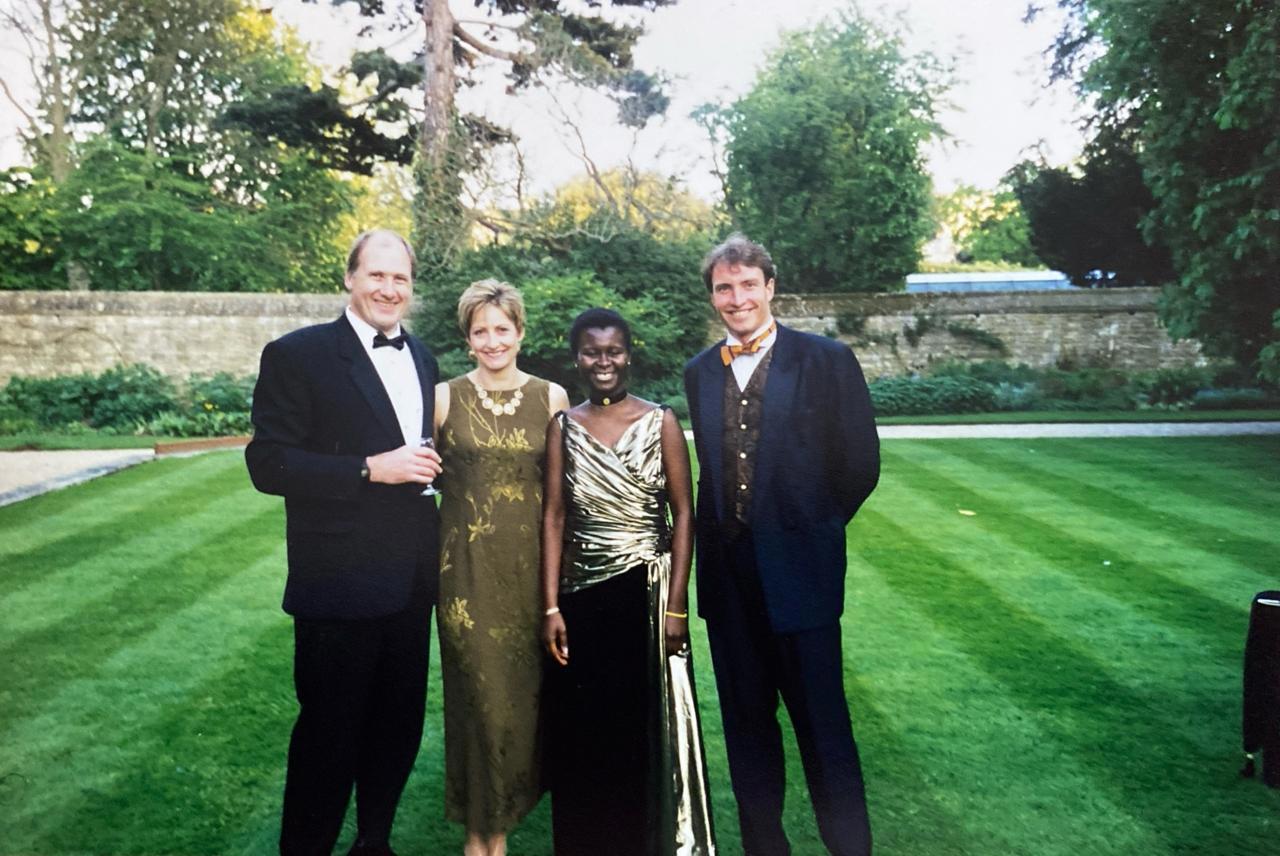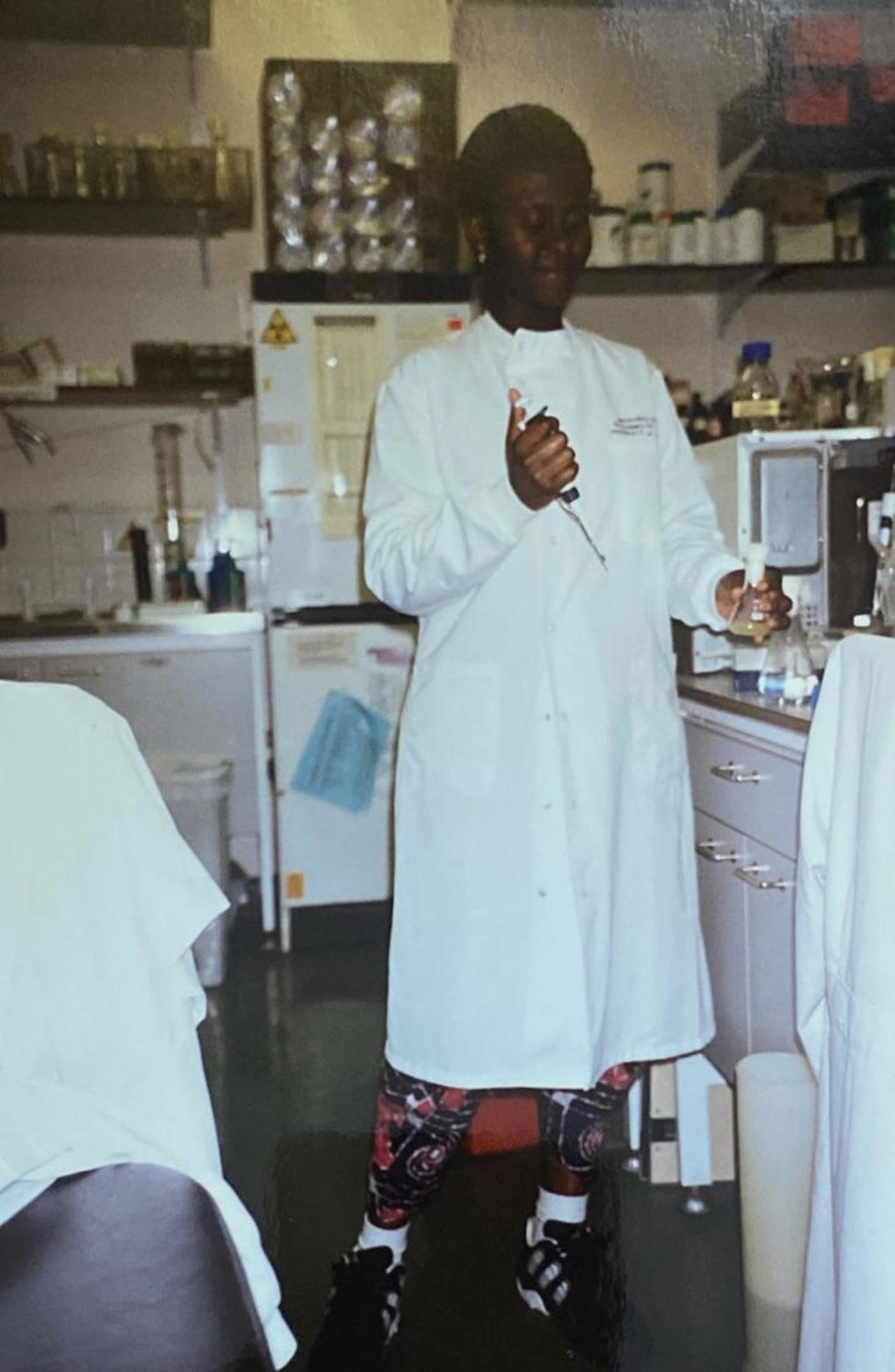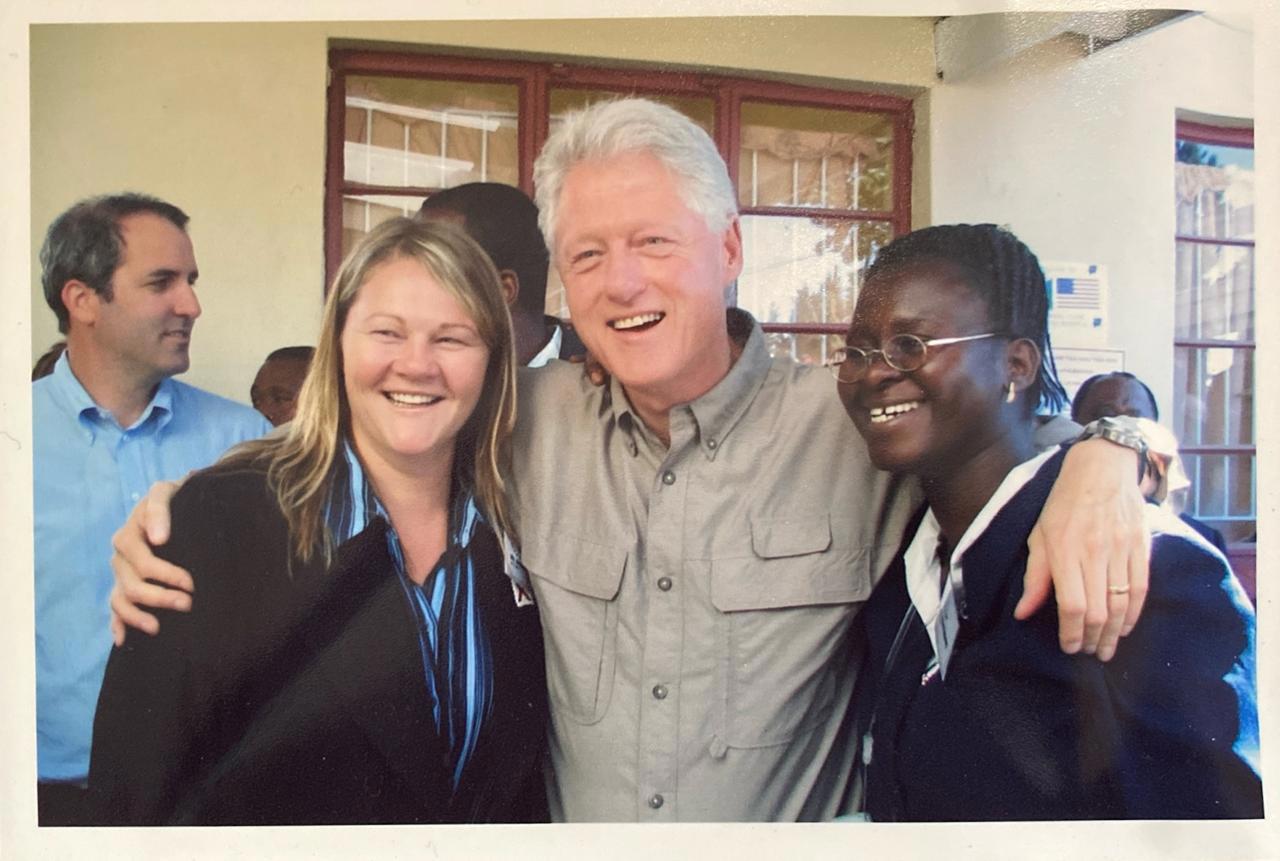Rachel Toku-Appiah is a leader in international development. Born in Accra, Ghana, studied in Botswana before going to Oxford to read for a master’s in biochemistry. After a period working as a consultant with McKinsey and Company, she joined the Clinton Foundation, becoming Director in Lesotho and focusing on programmes to strengthen the country’s health system. Toku-Appiah then worked at the Graça Machel Trust before joining the Bill & Melinda Gates Foundation, where she was Director, Program Advocacy and Communications, Africa. This narrative is excerpted from an interview with the Rhodes Trust on 10 April 2025.
Rachel Toku-Appiah
Botswana & Keble 1996










‘I was interested in everything and curious about how things worked’
I had what one might call an idyllic childhood. As the youngest of five children, I was often pampered, but both my parents and my siblings also made sure that I didn’t end up spoiled. My mum worked in the postal service and my dad was an educator, and when I was six, my brother Michael and I moved to Botswana to join my dad, who was leading an effort to send educators to southern Africa. Michael and I went to school in Botswana so my dad wouldn’t be lonely. Our three older siblings, who were at boarding school in Ghana, came to Botswana for holidays and we would all get to play outdoors a lot.
I started off having to commute to the capital to go to our English-medium school. Initially, I was teased, because I had an accent that was different from everybody else, but then I found people that I made friends with. I was also fine being on my own if it meant doing what I was comfortable with, and I think that helped me a lot in secondary school. My dad really encouraged us to learn, and I remember doing science experiments and maths at home. For him, it was about applying knowledge not simply acquiring it. So, learning, for me, was fun, and I was interested in everything and curious about how things worked. In my early years, I was an all-rounder, and then I started to get more interested in the biological sciences.
On applying for the Rhodes Scholarship
When it came to university, I wondered at first whether I should follow one of my siblings into accounting. My father’s response was, ‘You can be whatever you want to be.’ I initially took chemistry, biology and physics and then, when I had the option to specialise, I chose microbiology. It was just something that really piqued my interest and it also had a link to the challenges of healthcare, which would come to be something I would focus on later in life. I loved being in the labs, that chance to learn something and then do the practical work. We had really, really good professors and undivided time and attention and I did not realise how privileged we were until I got to Oxford.
I knew that I wanted to go on to further study, which was much easier to do outside Botswana for the field I was interested in, but I needed to find funding. I saw this poster in the science block for the Rhodes Scholarship. With no idea how prestigious it was, or how competitive, I applied for it and then I got invited for the first round of interviews. It was an opportunity to meet all these amazing people who had achieved a million and one things. The second round of interviews was in Cape Town, where I hadn’t been before, and the secretary of the committee was so kind. She showed me around and she even gave me something warm to wear, because Cape Town was freezing at that time of year. I felt the human kindness in the process and the fact that they wanted you to be at your best. When I learned I’d got the Scholarship, it was almost surreal. I thought, ‘My life’s going to change.’
‘It was a tough season’
And change it did. I arrived in Oxford starry eyed and eager to learn. It was an incredible opportunity, and I made the most of it. My college, Keble, was an environment I loved. It had character, and it was such a green environment, like the city around it. I tried all sorts of new things, from rowing to ice-skating and even joining the archaeological society and going on trips to Wales and other parts of England. Together with a few other women graduate students, we formed the first ever Keble women’s MCR (Middle Common Room) rowing team. I also joined the college Christian Union and my church became a home away from home. I had the chance to meet a lot of other Rhodes Scholars, and that was wonderful too.
On the academic side, it was a bit more challenging. The lab I had chosen wasn’t that well-funded or well resourced, and that took me by surprise, given the rich resources I’d been lucky enough to have in Botswana. The research I was trying to do was tough as well. I was looking for a gene that we felt switched on a certain kind of antibiotic resistance. But what made it particularly challenging was my own health. I hadn’t had any childhood illnesses growing up, but by December of my first year, I had really bad flu and then I got very ill, to the point where I couldn’t go into the lab. I didn’t have any family support around me and I just had to grow up, to mature. It was a tough season for that and what made it especially challenging was that every time I’d go to the doctors, they thought I had HIV, because I’d come from Botswana. Eventually I was diagnosed with something that required surgery. I got better, but it was a challenge, and part of that was learning to accept help from other people, which was something I’d never really had to do before.
‘I had the time of my life’
I’d planned to do a DPhil, but one day, after a particularly frustrating day in the lab, the guys from McKinsey, who’d been reaching out to me during my first year, got in touch again. I went on a weekend programme with McKinsey in Spain where they put us in teams and gave us case studies, and I really enjoyed that. I wanted to stay in the healthcare space, and McKinsey had an office that specialised in working with pharmaceutical companies, in New Jersey, so that was where I applied. I worked there for a couple of years, doing the mini-MBA while there, and then I left and went back to Ghana. I used my McKinsey skills in finance and hiring staff to rebuild the company of a family friend. It was good, but it wasn’t what I really wanted to do, so I went back to the US and started looking for different roles.
The Clinton Foundation was the perfect organisation for me, because they were running an HIV/AIDS initiative that focused on care and treatment, and that was an area I had always wanted to work in. There was such stigma around it, and even some people with AIDS were in denial. Prevention alone wasn’t going to work: we needed to go large scale on care and treatment. I worked in Lesotho, and I had the time of my life, as the healthcare situation improved. We were using business principles to do things like dropping the price of previously inaccessible drugs. I got promoted to the Deputy Country Director role, and later the Country Director role, positions that included working with partners in healthcare. During that period, we started to see the number of deaths declining.
Following my time with the Clinton Foundation, I went to work with Mrs. Graça Machel, setting up the Graça Machel Trust as its first Executive Director and later, leading its nutrition work. My keen interest in nutrition then led me to work with Global Citizen, before joining the Gates Foundation. I was ready for a new challenge, and they do a lot of health work, but they also have programmes in the economic opportunities space and gender. I knew that I would continue to learn. I was the first ever director in the role, and I loved it. There was a lot of travel, a lot of knowledge-sharing and the Gates Foundation has a lot of super smart people, so if there was something I didn’t know, I could just reach out. Now, I’ve taken some time off so that I can spend more time with my kids and focus on family. That’s a real privilege, and it’s also given me the time to indulge another passion of mine, which is writing short stories.
‘You can learn and take your journey to places you might not have imagined were possible.’
A guide for me in life is that none of us choose where to be born, which family to be born in, and that’s what’s always prompted me to work in ways that give everyone a chance. Being able to take people to healthcare they would otherwise not have been able to access was a dream come true. I got to do what I had always wanted to do. I’ve done a lot of start-up type jobs where resources aren’t flowing and you don’t yet have the staff you need, but I do what I can with what I have. I know from growing up in Botswana how privileged I have been, and every life I was able to positively contribute to was a life that was better off. To today’s Rhodes Scholars, I would say that the Scholarship offers you a worldwide community. You can learn and take your journey to places you might not have imagined were possible. So, don’t be overwhelmed. Take the opportunity to enjoy life while you do good.
